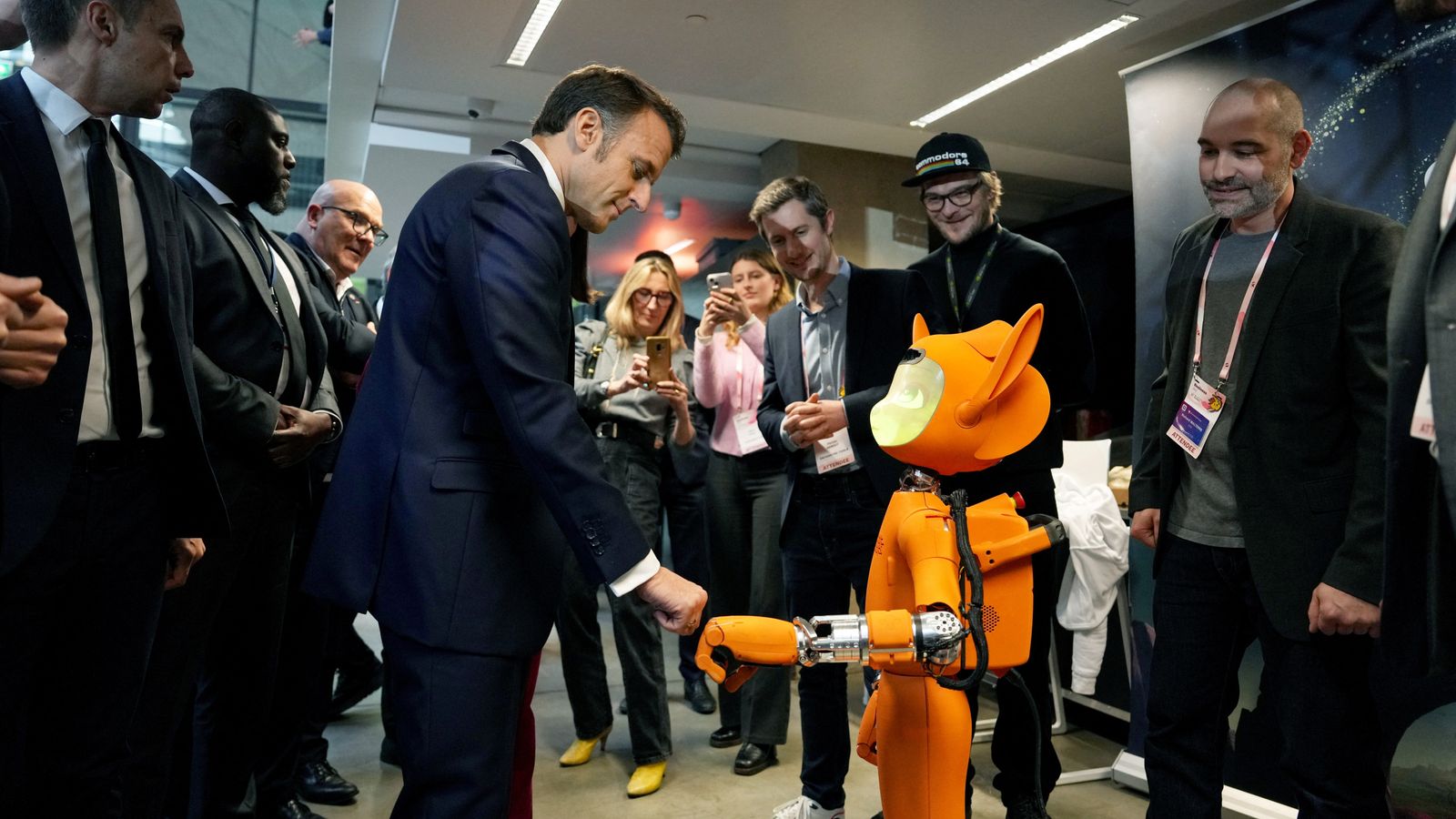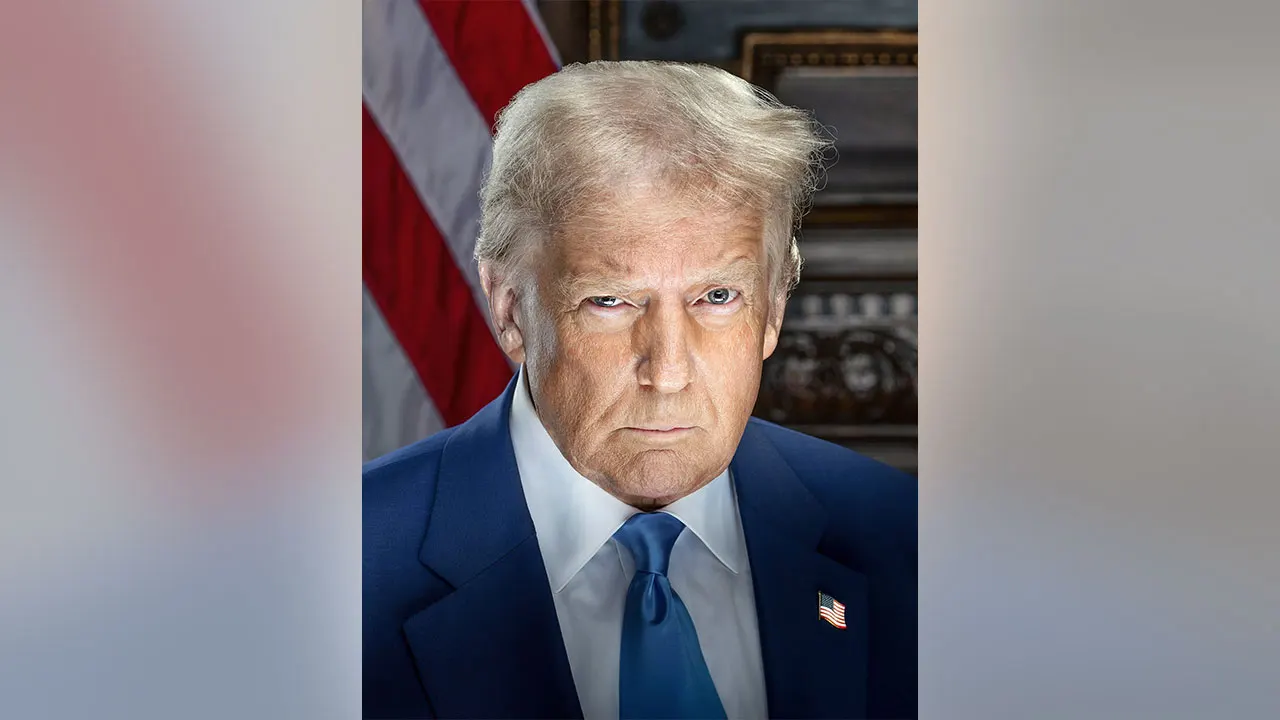U.K News
Why the UK didn’t sign up to global AI agreement

The Paris AI Summit: A Missed Opportunity for Global Unity on Artificial Intelligence
The city of Paris recently hosted a high-profile summit on artificial intelligence (AI), bringing together world leaders, tech moguls, and experts to discuss the future of this transformative technology. However, the two-day event ended without a unified agreement, as the UK and the US refused to sign a global declaration on AI regulation. The summit, while showcasing the potential of AI, also highlighted the deep divisions among nations regarding how to manage its risks and challenges.
The US and UK’s Stance on AI Regulation
The US and UK emerged as the primary holdouts in signing the declaration, each citing different reasons for their reluctance. US Vice President JD Vance warned that excessive regulation could stifle the growth of the AI industry, which is still in its early stages. His comments echoed President Donald Trump’s recent executive order rolling back regulations introduced by the previous administration. Vance argued that overregulation could "kill a transformative industry just as it’s taking off." Meanwhile, the UK expressed dissatisfaction with the declaration, claiming it lacked sufficient clarity on global governance and failed to address critical issues like national security. A UK government spokesperson emphasized that the declaration did not provide the practical guidance needed to tackle these complex challenges.
The Hidden Dangers of Unregulated AI
While the debate over regulation dominated the summit, experts warned of the existential risks associated with unchecked AI development. Carsten Jung, the head of AI at the Institute for Public Policy Research (IPPR), highlighted several ways in which AI could pose a threat to global security and stability. These risks include enabling hackers to infiltrate computer systems, losing control of AI bots that "run wild" on the internet, and even aiding terrorists in creating bioweapons. Jung emphasized that these scenarios are not the stuff of science fiction but real dangers that demand immediate attention.
Another pressing concern is the exclusion of marginalized voices in the development and governance of AI. Dr. Jen Schradie, an associate professor at Sciences Po University, pointed out that people with limited internet access or digital literacy are often left out of the datasets that train AI systems. This exclusion not only perpetuates existing inequalities but also means their needs and perspectives are ignored in AI-driven solutions for healthcare, education, and employment. Schradie argued that without addressing these disparities, the benefits of AI will remain concentrated in the hands of a privileged few.
The Race for AI Supremacy and Its Consequences
The rapid adoption of AI technologies has created a sense of urgency among governments and companies to stay ahead in the race for innovation. ChatGPT, for instance, reached 100 million monthly active users just two months after its launch, making it the fastest-growing app in history. However, this relentless pace of development has raised concerns about the lack of oversight and the potential consequences of releasing untested AI systems into the market. Michael Birtwistle of the Ada Lovelace Institute compared the current approach to AI regulation to the absence of standards in the food and pharmaceutical industries, where safety and efficacy are rigorously tested before products are released to the public. "Instead of a cautious, step-by-step approach," Birtwistle said, "we’re seeing AI products rolled out directly to market, often with little regard for the risks."
A Call for Global Cooperation
As the summit drew to a close, many attendees expressed disappointment at the lack of progress. Stuart Russell, a leading AI scientist from the University of California at Berkeley, criticized the vague promises of "open and inclusive processes" as insufficient to address the safety concerns surrounding AI. He and other experts stressed the need for a more structured and collaborative approach to managing the risks of AI. Carsten Jung summed up the urgency of the situation, warning that if nations continue to prioritize speed over safety, the consequences could be catastrophic. "If we all race ahead and try to come first as fast as possible and are not jointly managing the risks, bad things can happen," he said.
The Road Ahead
The Paris AI Summit highlighted both the potential of AI to transform society and the challenges of regulating it on a global scale. While the UK and US opted out of the declaration, the event served as a reminder that the risks associated with AI are too great to be addressed by any single nation or company. The summit also underscored the need for greater inclusivity in AI development, ensuring that marginalized communities are not left behind in the digital revolution. As AI continues to evolve at breakneck speed, the world must come together to establish clear, enforceable standards that balance innovation with responsibility. Without such cooperation, the promise of AI may be overshadowed by the dangers it poses to humanity.
-

 Money2 days ago
Money2 days agoConsumer Financial Protection Bureau Adds Error Message To Home Page
-

 Asia10 hours ago
Asia10 hours agoWhat you need to know about 2024 YR4, the asteroid that could hit Earth in about eight years’ time
-

 Entertainment2 hours ago
Entertainment2 hours agoPrince Harry and Meghan Markle’s Best Moments and Photos From the 2025 Invictus Games
-

 Australia10 hours ago
Australia10 hours agoTropical Cyclone Zelia intensifies to category 2 storm
-

 Money2 days ago
Money2 days agoWinning Content Strategies For Wealth Managers
-

 Politics11 hours ago
Politics11 hours agoDozens of religious groups sue to stop Trump admin from arresting migrants in places of worship
-

 United States2 days ago
United States2 days agoJudge extends restraining order to ban Trump admin buyout offer to federal workers
-

 Entertainment2 days ago
Entertainment2 days agoEvery Celebrity Who Attended the 2025 Super Bowl: A Guide to the A-Listers at the Big Game
















